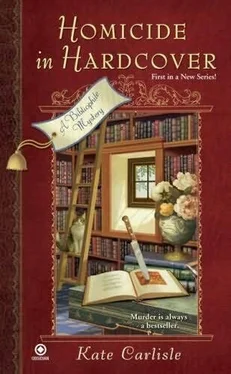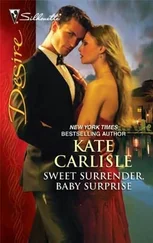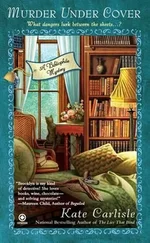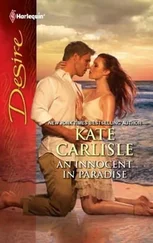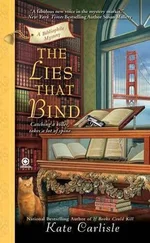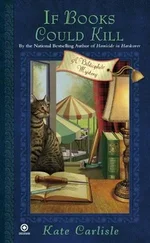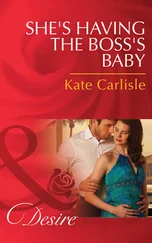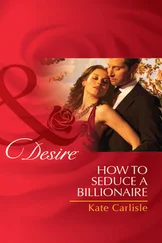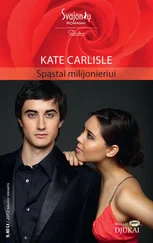“Oh, darn.”
“Something wrong?” he asked, unexpectedly attuned to my dripping sarcasm.
“No, everything’s great,” I said, pumping up my enthusiasm. “I’m sorry I missed them but my mother called.”
“Is she okay?”
“Oh yeah. But she needed me to, um, pick something up for her.”
Not too clever as excuses went, but I wasn’t ready to tell him what I’d discovered inside the Faust -or rather, what I had not discovered-until I actually found whatever it was. And I didn’t want the Winslows to know what I was looking for. Which wouldn’t be a problem since I didn’t have a clue what I was looking for, anyway.
I frowned. Even I was confused.
“Well, say hi to your mom for me,” Ian said.
“Ah,” I said, remembering where I was and who I was talking to. “I will. Hey, you should come up for dinner one of these days. Austin thinks this year’s pinot is bordering on world class. He’s forcing everyone to taste it.”
“That bastard.”
I laughed. Since Ian had been Austin’s college buddy as well as my short-term fiancé, he was no stranger to my family and the commune.
“I know my parents would love to see you,” I said, steering around an idiot in red spandex riding a ten-speed. On the freeway? But it was Marin, after all.
“I’d love to see everyone,” he said, sounding wistful. “I’ll give them a call soon.”
“Great.” I slammed on my brakes to avoid sideswiping a vintage copper Mustang whose driver thought he owned the road. Cool car. Dumb driver. “I’ll try to get back there later today,” I added, knowing it was a lie.
“Don’t bother,” he said. “You can sign everything tomorrow. You’ll be here tomorrow, right?”
“Of course,” I said, feeling the pressure of employment all of a sudden. This was why I owned my own business. I didn’t work well in captivity. “I’ll be there every day until the book’s done, I promise. This was just, you know, an extenuating circumstance.”
“No problem, kiddo. I’ll call the Winslows and let them know to come by tomorrow.”
“Dandy,” I lied. Again. “See you tomorrow.”
“Good-o,” he said, and signed off.
I hung up. The good news about Ian’s call was that it had helped me ignore the cheesy condo-clogged hill-sides of Sausalito and all the minimalls and car lots that lined the freeway through San Rafael.
The bad news was that I’d have to deal with the Winslows tomorrow. I wondered again whether the conversation I’d overheard the night of Abraham’s murder had something to do with his death. I tried to recall their words.
“Son of a bitch.” “Problem with a book.” “I took care of it.”
It all sounded suspicious. Without thinking, I checked my rearview mirror. I had the abrupt and uncomfortable feeling that someone was following me.
I took the turnoff to Route 37 and for the next few miles there was little but wide-open marshland that spread clear to the eastern side of the bay. I could see no sinister cars behind me. And no black Bentley, either.
Miles later, grassy hills melded into vineyards. I finally made it through Glen Ellen, the southern boundary of the region known locally as the Valley of the Moon. Three miles beyond town, I turned onto Montana Ridge Road and headed for Dharma.
The day we moved here so many years ago, Montana Ridge Road had been a pitted, one-lane gravel road bordered by rickety wood fences and rusted chain link. We’d driven past broken-down barns, funky farmhouses and tarnished trailers. Most front lawns featured the requisite bullet-riddled washing machine. Lots of tarnished RVs were parked on the driveways as extra housing for the in-laws.
After spending my first seven years in the quiet elegance of the St. Francis Woods neighborhood of San Francisco, I was shell-shocked by these stark surroundings and so were my siblings. As the family car bucked and bounced and we got our first depressing view of this dismal, rural neighborhood that was to be our new home, my older brother, Austin, began to quietly hum the first four bars of “Dueling Banjos.”
At the time, I was too young to get the reference. But my dad got it and told Austin to pipe down.
Despite first impressions, we’d done pretty well for ourselves. For the first two years we lived up here, all eight of us were squeezed into an Airstream camper while the Fellowship members built a community and planted vineyards. Over the years, more property was acquired, more artists’ studios were constructed, a restaurant was built onto the town hall and a schoolhouse was added for the kids who seemed to multiply with every season.
Within a few years, the commune had grown to almost nine hundred and Guru Bob incorporated. Now the little town of Dharma was a thriving community of chic shops and art galleries, restaurants, artisanal farms, an excellent winery, three stylish B and Bs and a world-class health and beauty spa. Not bad for a gaggle of Deadheads and freaks, as Dad always said.
Montana Ridge turned into Shakespeare Lane, signaling the beginning of the quaint, two-blocks-long Dharma shopping district. I drove past the darling shops and cafés and small storefront businesses, including Warped, my sister China’s yarn and weavings shop.
Past the wide central square and town hall, I swung onto Vivaldi Way, the narrow private road that wound up the hill overlooking Dharma. I pulled into Abraham’s circular drive and parked, then climbed out of the car and stretched my arms out to unkink my back and shoulders. The air up here was cooler and the sky was beginning to cloud up. I hoped it wouldn’t rain before I got back to the City.
I stared at Abraham’s house, an imposing two-story Spanish colonial with a great view of the town and rolling hills beyond. Not exactly the picture that leapt to mind when you heard the word commune, but years ago, once the commune had started making money, Guru Bob had been adamant about raising the level of impressions and lifestyle.
Abraham’s patio and pool circled the back of the house and his bookbinding studio was at the far end of the property.
I grabbed my keys and bag and headed for the studio. A banner of yellow crime scene ribbon was strewn across the door, so the police had been here, too. Had they found anything incriminating?
I had a moment of indecision, then resolutely pulled the tape off and opened the door. I walked inside and was assailed by the smells of rich leather, musty parchment, inks and oils and peppermint. Almost instantly, bittersweet memories flooded my consciousness.
I could picture Abraham standing in his leather apron, his shirtsleeves shoved up his dark, muscular arms, his leather-stained hands gold-flecked as he painstakingly gilded an intricate design on the spine of a book held tightly in place by one of his antique book presses.
I’d grown up in this room, apprenticing for the man. It hadn’t been easy. He’d enjoyed being a strict task-master and I made a lot of mistakes. But I loved the work, loved the books, loved the feeling of accomplishment that came with completing a project. I knew from the beginning I had a gift for both the art and the craft of bookbinding, even though Abraham never said so. It didn’t matter. I’d overheard him telling my parents on more than one occasion that I’d done good work and it never failed to warm my heart to hear him say so.
As I rounded the room, I caught a whiff of sawdust mixed with sweat and glue and I almost lost it right there. He should’ve been here, working and laughing and ordering me around. I gulped, trying to ease the lump in my throat.
I dabbed away tears with my jacket sleeve as I ambled around the studio looking for anything that might tell me what had been hidden behind the endpapers of the Winslow Faust . A journal perhaps, or a binder, a calendar. Or maybe a sign that read “Yo, here’s what you’re looking for.”
Читать дальше
